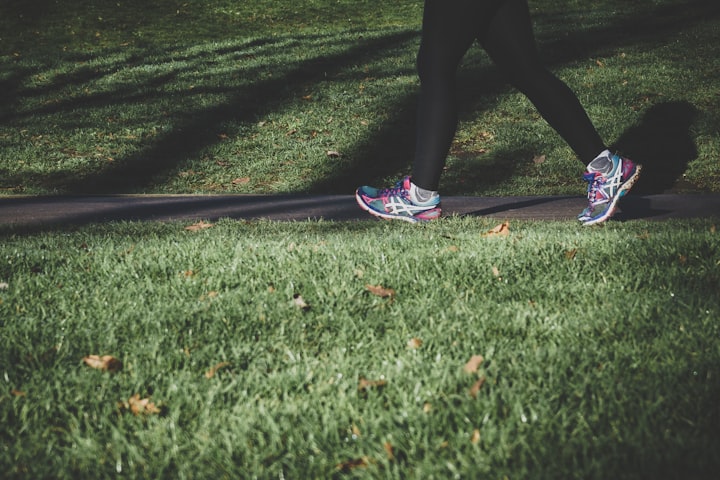
Doctors recommend 30 minutes 5 times weekly to help maintain a healthy lifestyle. They often leave the type of exercise or how much exercise one should do up to us. However, many people find it hard to develop and maintain a suitable exercise regimen. Dr. Matt Tanneberg, a sports Chiropractor and Certified Strength and Conditioning Specialist in Phoenix, Arizona, explains how 'Plateauing' affects the benefits of exercise. He explains that persons constantly plateau from running, running the same distance, time and speed day after day. To maximize the benefits of exercise, switching up the type of exercise routine is vital. Today you will discover how walking for 30 minutes contributes to a healthy lifestyle.
How does walking affect the body?
Walking is the simplest form of exercise. It is not the casual stroll we do while out with friends. Walking as a form of exercise requires more input. Walking at a pace that allows talking in complete sentences but not singing is the slowest pace classified as exercise. CDC established the guidelines for classifying the speed of walking.
Exercise like walking and running strengthens the cardiovascular and respiratory systems while mediating the body's metabolism. At the appropriate walking pace;
- Increase circulation around the body.
- Blood sugar decreases as metabolic rate increases.
- There is improved oxygenation of the blood.
- Vascular resistance decreases, lowering blood pressure.
- For these reasons, people with cardiovascular and respiratory problems are encouraged to walk daily.
How does walking contribute to a healthy lifestyle?
Walking has many benefits for the body. Walking is not the most effective way to lose weight. However, a brisk walk can burn as many calories as slow running. An adult with 160 pounds can burn up to 302 calories walking at 3 1/2 miles per hour for 1 hour. At a steady pace, blood sugar and fat content remain under control. Walking to lose weight is possible. Rob McGillivray, Founder of RETROFIT in West Hollywood, suggests changing certain variables during a simple walk to improve weight loss. Changes like weights on your legs, the speed of walking, and increasing the incline during walks help increase the number of calories burnt.
According to an article on EatingWell, walking can lower the risk of many cardiovascular-related diseases. Diseases like diabetes, high blood pressure, and even high cholesterol are preventable by walking daily. A study by The National Runners' Health and The National Walkers' Health found results. When they compared blood cholesterol and blood pressure levels, heart disease, and diabetes over six years, moderate-intensity walking had the same effect as vigorous-intensity running.
How does walking improve Mental health?
More so, walking can decrease anxiety and depression. The article, 'Is Walking a Good Enough Form of Exercise?' published on the EatingWell website, was insightful. They explained that 30 minutes of daily walks reduces anxiety and depression while boosting immunity. Give Your Ideas Some Legs: The Positive Effect of Walking on Creative Thinking by Stanford University also explains walking boosts mental health.
Results from the article proved that walking improves creative thinking by 60 percent. Researchers of this study coined the term 'divergent thinking.' The definition of divergent thinking is generating multiple creative ideas by exploring more than one solution. Walking, they explained, opens the flood gates to free-flowing ideas, which improve creativity and physical activity.
There is more, another study shows walking and other aerobic exercises increase hippocampal function in older sedentary persons. The improved hippocampal function helps with memory and learning. The subjects in this study have improved executive functioning and organizational and planning ability.
'Walking facilitates positive affect (even when expecting the opposite)' is a study by Jeffrey Conrath Miller and Zlatan Krizan. It proved that 12 minutes of walking increases 'joviality, vigor, attentiveness, and self-confidence.' If you want to reduce the negative thoughts, the study suggests a walk in nature.
How much walking should I do?
World Health Organization (WHO) recommends at least 150 minutes of exercise weekly. That means 30 minutes of exercise daily. But it is not just walking. Walking at a brisk pace for 30 minutes can equal just over 1 mile.
About the Creator
Abika
I started writing because it was my way to vent. Now I absolutely enjoyed writing and sharing.
I also write at Medium, find me at:
Medium lisby230.medium.com
Twitter Healthwise94358280
facebook peppingyourstep





Comments
There are no comments for this story
Be the first to respond and start the conversation.